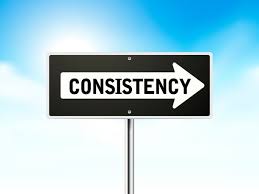In the ever-evolving world of sales, feedback is a critical component of success. Sales leaders play a pivotal role in providing constructive feedback that can help their teams improve and achieve their targets. In a study highlighted in the Harvard Business Review article, it showed that Sales professionals who received consistent and constructive feedback were able to achieve their sales targets at a rate 30% higher than their peers who did not receive feedback. However, delivering feedback effectively can be a daunting task. In this article, we will explore the challenges faced by sales leaders during feedback conversations and discuss some effective strategies to navigate these discussions.
Challenges faced during feedback conversations:
> Balancing Positivity and Constructiveness
One of the key challenges faced is striking the right balance between being positive and constructive in their feedback. While it’s essential to highlight areas for improvement, it’s equally important to acknowledge the sales team’s efforts and successes. Finding this equilibrium can be tricky, as overly negative feedback can demotivate your team, while overly positive feedback may not address the real issues.
> Handling Emotional Reactions
Salespeople are often passionate about their work, and feedback, whether positive or negative, can elicit strong emotional reactions. Sales leaders must be prepared to handle these emotions, which can include defensiveness, frustration, or even anger. Emotional reactions can make it challenging to have a productive conversation and may hinder the acceptance of feedback.
> Maintaining Trust and Morale
Maintaining trust and morale within the sales team is crucial for long-term success. Providing feedback that is perceived as unfair or biased can erode trust and lead to a decline in team morale. Sales leaders must be cautious about how they deliver feedback to avoid damaging relationships and team dynamics.
> Dealing with Resistance
Resistance to feedback is a common occurrence in any professional setting, and the sales team is no exception. Some team members may resist feedback due to a fear of failure or a belief that they are already doing their best. Overcoming this resistance and convincing salespeople to embrace feedback is a significant challenge.
Tips for providing constructive feedback:
1) Create a Safe and Supportive Environment
To address the emotional reactions that feedback can trigger, sales leaders should create a safe and supportive environment for feedback conversations. Start by emphasizing that the goal is to help the individual improve, not to criticize or blame them. Encourage an open and nonjudgmental dialogue where both parties can express their thoughts and concerns.
2) Be Specific and Objective
Constructive feedback should be specific and objective. Instead of vague statements like “You need to improve your performance,” provide concrete examples of behavior or results that need improvement. For instance, “I noticed that in your recent client meeting, you missed an opportunity to address the client’s objections effectively.”
3) Focus on Behavior, Not Personality
When providing feedback, it’s essential to focus on specific behaviors and outcomes rather than making personal judgments. Avoid phrases like “You are lazy” and instead say, “I have observed that you occasionally miss your follow-up calls, which affects your overall performance.” This approach helps separate the feedback from the individual’s identity.
4) Ask for Input and Solutions
Engage the employee in a two-way conversation by asking for their input and potential solutions. This not only makes them feel involved but also encourages them to take ownership of their development. Ask questions like, “What do you think contributed to the missed sales target, and how can we work together to improve it?”
5) Set Clear and Achievable Goals
After providing feedback, work with the employee to set clear and achievable goals for improvement. These goals should be specific, measurable, and time-bound. Regularly track progress and provide ongoing support and guidance as they work towards their objectives.
6) Offer Training and Development Opportunities
In some cases, feedback may reveal skill gaps that need to be addressed through training and development. Sales leaders should be prepared to provide access to relevant training resources or coaching to help the individual enhance their skills.
7) Follow Up and Recognize Improvement
Feedback should not be a one-time event. Schedule follow-up conversations to assess progress and provide further guidance. When individuals make improvements, acknowledge and recognize their efforts. Positive reinforcement can motivate salespeople to continue working on their development.
Remember that effective feedback is a two-way street that benefits both the individual and the team. By mastering the art of delivering constructive feedback, sales leaders can help their teams continuously improve, achieve their targets, and drive success in the competitive world of sales.
Discover our Sales Leadership Academy program to know how we can transform your leadership team to consistently win in the marketplace.



